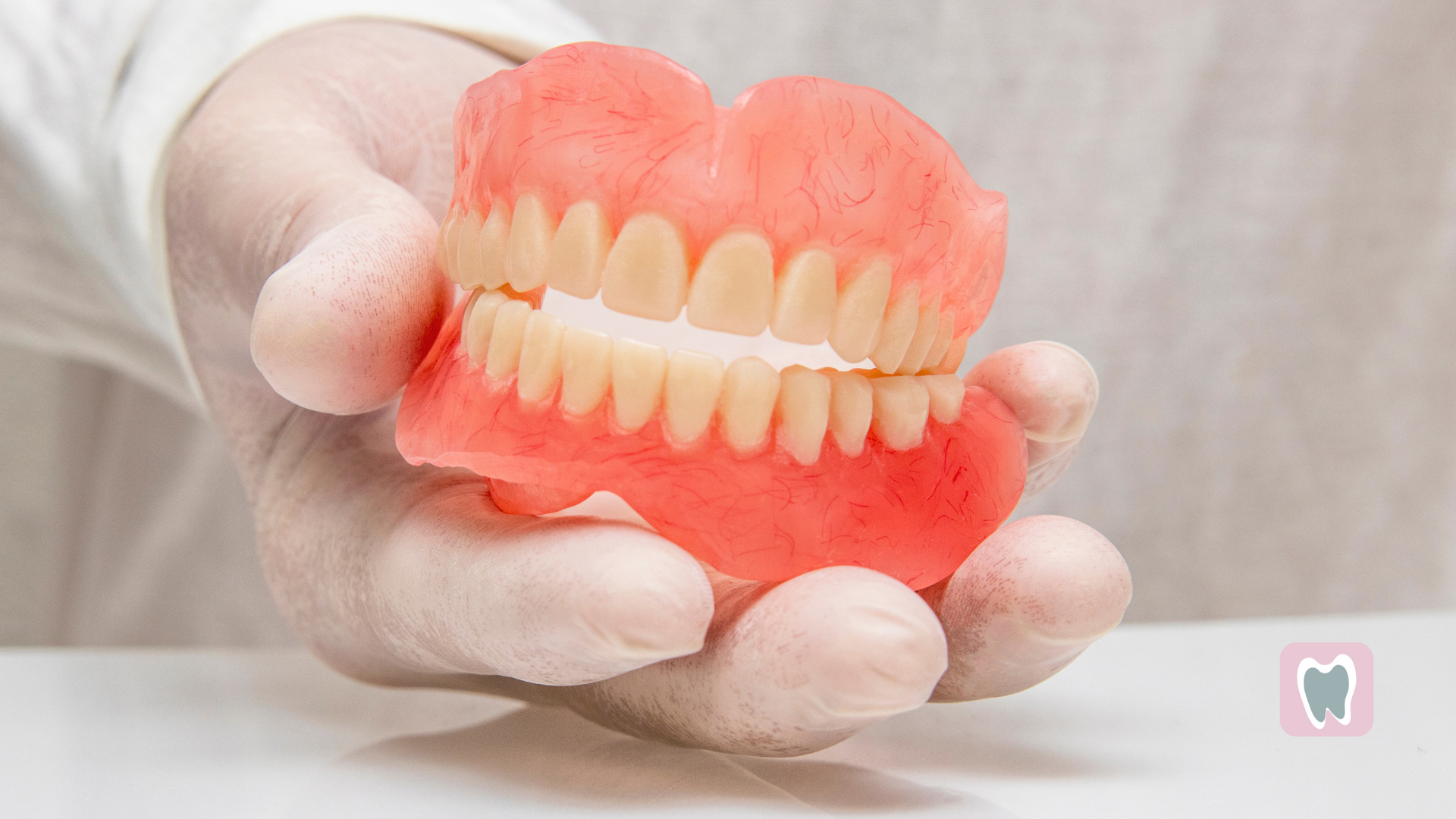When to Replace Your Dentures: Signs, Risks & Oral Health Tips

Source: Dr. Marketing
Dentures play a crucial role in restoring smiles, improving chewing function, and boosting confidence for individuals who have lost their natural teeth. However, like natural teeth, dentures require proper care and timely replacement to maintain optimal oral health. Worn or damaged dentures can lead to irritation, discomfort, and even serious health complications if not addressed promptly.
April is Oral Cancer Awareness Month, a perfect time to highlight the importance of maintaining well-fitting dentures and staying vigilant about oral health. Improperly fitting or damaged dentures not only affect comfort and function but can also contribute to an increased risk of oral cancer if left unchecked. At Curity Dental Care, located in East York, we are committed to educating our patients on when to replace their dentures, how to spot potential oral health issues, and the importance of regular dental checkups.
The Lifespan of Dentures: Why Replacement Matters

Dentures are not designed to last forever. On average, dentures need to be replaced every 5 to 7 years, although this timeline can vary depending on usage, care, and changes in the mouth. Over time, natural wear and tear, alterations in the jawbone, and shifting gum tissues can affect the fit and function of dentures. While high-quality dentures are built to withstand daily wear, the mouth is constantly changing, and even the best-made dentures can become ill-fitting or damaged.
Ignoring the signs that your dentures need replacement can lead to a host of oral health issues. These range from mild discomfort to serious complications, including gum infections, difficulty chewing, speech problems, and an increased risk of oral cancer. The decision to replace dentures should not be delayed, as timely action can prevent further damage to your oral health and overall well-being.
The Consequences of Worn or Damaged Dentures

When dentures become worn or damaged, they can no longer provide the support and function needed for daily activities like eating, speaking, and smiling. The consequences of not replacing damaged dentures go beyond aesthetics—they can significantly impact your oral and general health.
Gum Irritation and Sores
One of the most common issues with worn dentures is gum irritation. As dentures age, their fit may become loose, causing them to rub against the gums. This friction can lead to painful sores, inflammation, and even ulcers in severe cases. Over time, chronic irritation may cause hyperplasia, a condition where the gum tissue overgrows, potentially leading to infections. Additionally, untreated sores and persistent inflammation can increase the risk of oral cancer, especially in individuals who wear dentures continuously without proper hygiene practices.
Bone Loss in the Jaw
Well-fitting dentures provide even pressure distribution on the gums and underlying bone. However, when dentures do not fit properly, uneven pressure can accelerate bone resorption in the jaw. The jawbone requires stimulation from chewing to maintain its density and strength, and ill-fitting dentures can disrupt this natural process. Over time, bone loss can change the shape of your face, creating a sunken appearance and making it even harder to fit new dentures correctly. Severe bone loss may also lead to difficulty eating, digestive issues, and altered speech patterns.
Increased Risk of Oral Cancer
April is Oral Cancer Awareness Month, a timely reminder of the importance of monitoring oral health, especially for denture wearers. Worn or ill-fitting dentures can cause chronic irritation in the mouth, contributing to cellular changes that may increase the risk of oral cancer. When dentures do not fit well, they can create friction points and pressure sores, which, if not addressed, may develop into precancerous lesions. Regular oral cancer screenings are vital for early detection, particularly for denture wearers who may be at a higher risk due to persistent irritation and tissue damage.
When to Replace Your Dentures: Key Signs to
Watch For

Recognizing the early signs that your dentures need replacement can prevent discomfort and help avoid complications. While annual dental checkups provide professional insight, denture wearers should also monitor their dentures at home for signs of wear and tear.
Visible Wear and Damage
Over time, dentures can develop cracks, chips, or wear down due to daily use. Damaged dentures are not only uncomfortable but can also cause injuries to the soft tissues of the mouth. Small cracks can harbor bacteria, increasing the risk of infections and gum disease. If your dentures appear worn out, it is time to consider a replacement.
Persistent Discomfort and Pain
Well-fitting dentures should feel comfortable throughout the day. If you experience pain, soreness, or pressure in the gums, it could indicate that your dentures no longer fit properly. Gum irritation can lead to infections, and chronic pain may disrupt your quality of life. A dental assessment can determine whether an adjustment, reline, or complete replacement is necessary.
Changes in Chewing and Speaking
Dentures are designed to restore function, allowing you to eat and speak comfortably. If your dentures slip, click, or shift while chewing or talking, they may have lost their fit. Difficulty with chewing can lead to nutritional deficiencies, and speech changes can impact social interactions and confidence.
Changes in Facial Appearance
As dentures age, they may lose their structure, contributing to a sunken facial appearance. This can make you look older and affect self-esteem. Replacing worn dentures can restore facial volume, support natural features, and enhance your appearance.
Frequent Need for Adhesives
If you find yourself relying heavily on denture adhesives to keep your dentures in place, it may be time for a new set. Well-fitting dentures should stay secure without the need for additional products. Overuse of adhesives can also lead to gum irritation and potential health risks if ingested in large quantities.
How Denture Wearers Can Self-Check for Oral Cancer

Since denture wearers are at a higher risk of oral cancer, self-examinations are an important part of prevention. Monthly self-checks can help detect early signs of oral cancer, allowing for prompt intervention.
- Remove your dentures and inspect your mouth with a bright light and mirror.
- Look for red or white patches, persistent sores, lumps, thickened areas, or any changes in mouth tissues.
- Gently feel around your mouth, including the gums, cheeks, tongue, and roof of the mouth, for unusual bumps or tender spots.
- If you notice any changes that persist for more than two weeks, schedule an appointment with your dentist for a professional evaluation.
How Curity Dental Care Supports Denture Wearers

At Curity Dental Care, located in East York, we understand the importance of well-fitted, comfortable dentures in maintaining oral health and quality of life. Our focus is on providing tailored solutions for denture repairs, relines, and replacements to ensure our patients always feel confident and comfortable with their smiles.
- Denture Relines and Rebases: Over time, the fit of dentures can change due to natural bone and gum alterations. We offer denture relines to adjust the internal surface of your dentures, ensuring a snug and comfortable fit. Rebasing involves replacing the entire base of your denture while keeping the existing teeth, offering a cost-effective solution to improve stability and comfort.
- Denture Repairs: Accidents happen, and dentures can crack, chip, or break. Our team provides prompt and precise repairs, restoring function and appearance quickly, so you can return to your daily routine with minimal disruption.
- Denture Replacements: When dentures become too worn or damaged, replacement may be necessary. Our custom-made dentures provide a natural look, enhanced comfort, and improved functionality, helping you maintain a healthy diet, clear speech, and a confident smile.
We combine advanced technology with personalized care to support our patients at every stage of their denture journey, emphasizing prevention, early intervention, and comfortable solutions. Our judgment-free environment encourages patients to openly discuss concerns, ensuring they receive the best possible care for long-lasting oral health.
Protecting Your Oral Health with Proper Denture Care

For denture wearers, timely replacement of worn or damaged dentures is essential for preventing discomfort and avoiding serious oral health issues, including oral cancer. By staying proactive about denture fit, participating in regular dental checkups, and conducting self-examinations, you can protect your smile and overall health.
At Curity Dental Care, located in East York, Toronto, we are committed to providing expert care for denture wearers, offering professional maintenance, replacements, and oral cancer screenings. Contact us today to schedule an appointment and learn more about how we can support your oral health journey.



